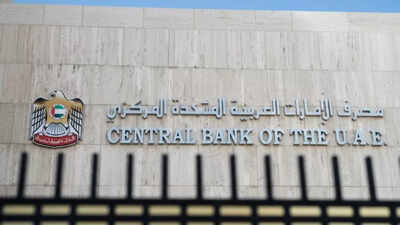The UAE Central Bank has removed the one-size-fits-all minimum-salary cutoff that many banks used (often around Dh5,000). That means if you don’t have a high monthly salary or a formal salary slip, you may still be able to get a regulated personal loan, provided the bank accepts your income evidence or uses the Wage Protection System (WPS) to collect repayments. This change is meant to make credit fairer and easier for everyday workers, students and low-wage earners.
UAE Central Bank unlocks loans for all residents
The Central Bank of the UAE (CBUAE) has issued a landmark directive to all licensed financial institutions, officially abolishing the long-standing minimum salary requirement for personal loans. For years, most banks maintained a strict floor, typically requiring applicants to earn Dh5,000 per month to even be considered for financing. This pivotal change is designed to radically expand financial inclusion across the nation. Instead of a mandated central figure, the CBUAE has now empowered each individual bank to determine its own eligibility criteria and salary thresholds based on its internal lending policies. This means banks now have the flexibility to create products tailored to a wider range of customers.
Who benefits most?
This crucial policy adjustment provides low-income earners, blue-collar workers, and younger residents with unprecedented access to regulated financial services. The inability to meet the high salary minimum previously acted as a massive barrier to formal banking. By removing this hurdle, the directive enables virtually all UAE residents, regardless of their income level, to open bank accounts and access basic services, including small-scale personal loans or “cash on demand.” The CBUAE’s primary goal is to ensure that everyone in the UAE has access to safe, regulated banking, fostering a more equitable and inclusive economy.
WPS linkage
While banks now have more freedom to set salary criteria, the system is secured through a direct link to the Wage Protection System (WPS). The WPS is the electronic mechanism used to track and regulate the timely payment of salaries to employees. This linkage is the key security measure for financial institutions, ensuring responsible lending. For any new loan issued, the WPS allows the bank to automatically deduct loan instalments directly from a borrower’s monthly wages immediately upon transfer. This structured repayment method minimizes credit risk for banks, making it viable for them to offer loans to a demographic they previously could not serve.
Loan limits and repayment rules still apply
It is vital for new borrowers to understand that while the salary
floor
has been removed, the stringent borrower-first safeguards set by the CBUAE remain fully in effect. These regulations are designed to prevent customers from falling into unmanageable debt and ensure responsible financing across all income brackets.The following maximum limits are still mandatory for all personal loans in the UAE:
- Loan Size Limit: The total loan amount a customer can receive cannot exceed 20 times their gross salary or total verifiable income.
- Repayment Cap: Monthly loan and interest instalments (deductions) must not exceed 50% of the borrower’s regular monthly income.
- Maximum Tenure: The total repayment period for a personal loan must not exceed 48 months (four years).
These clear limits, combined with the new access granted by abolishing the minimum salary, define a new era of responsible and inclusive lending in the UAE.This is a practical win for workers and low-income residents: the Central Bank has removed a hard salary barrier so banks can offer loans to people who previously were shut out. Outcomes will depend on how individual banks rewrite their rules, so check options, prepare alternate proof of income, and compare offers before you sign. Go to Source



